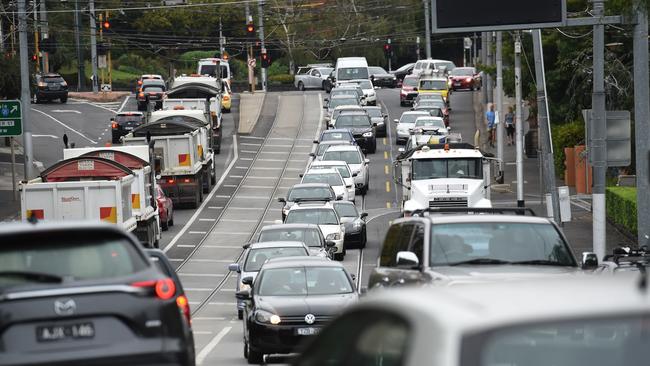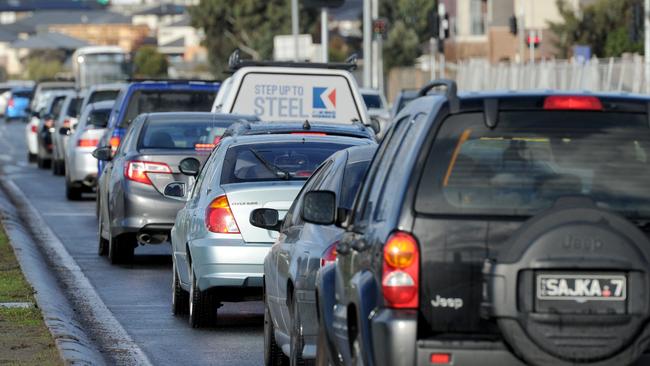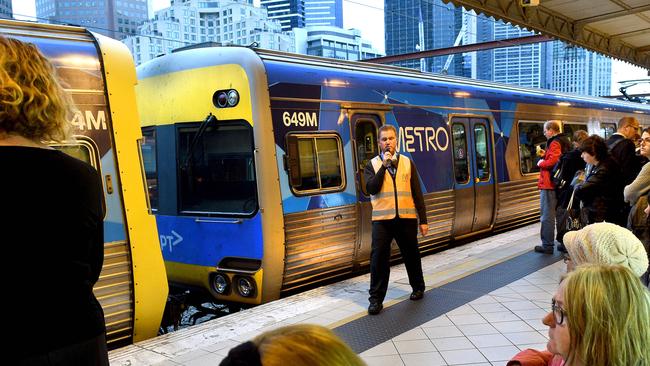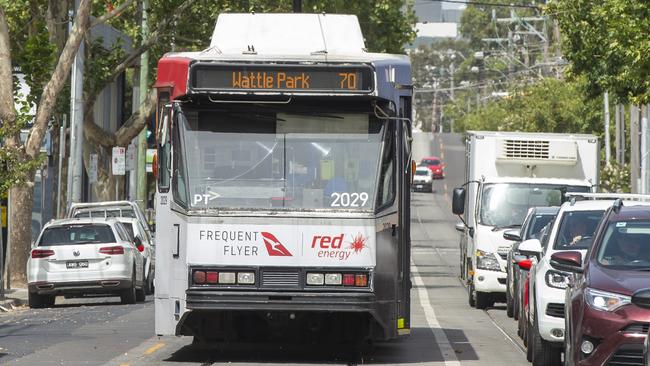Drivers, passengers would pay per km travelled under Infrastructure Victoria’s transport pricing plan
Car registration would be scrapped under a major shake-up of the state’s transport pricing plan, with motorists instead being charged in a way that will ease congestion. Here’s what’s proposed.

VIC News
Don't miss out on the headlines from VIC News. Followed categories will be added to My News.
Car registration would be scrapped and motorists instead charged based on how far they drive under a radical transport pricing plan from the state’s infrastructure advisory body.
The complete reworking of travel costs would also include distance-based public transport charges, with peak and off-peak rates and heavy discounts for bus trips.
A new London-style congestion cordon in Melbourne’s inner city would hit drivers with an extra $1-per-kilometre charge in peak periods, while parking fees would be based on demand, location and time.
Infrastructure Victoria is releasing the “congestion-busting” blueprint for transport network pricing today, and says it would leave 85 per cent of people better off once $1.4 billion in discounts and concessions are applied.

Without sweeping changes, by 2030 the state’s congestion costs will more than double to $10.2 billion as roads and rail groan under an extra 3.5 million trips.
The plan is based on applying discounts at off-peak times and incentives to leave the car at home, slashing 168,000 car trips in a move that would boost speeds in the inner city by 25 per cent for those who pay to drive.
Motorists would cough up 15.5c for every kilometre they drive, with a $5 daily cap for concession-card holders.
There would be 20 “free” days of travel to help regional Victorians and long-distance drivers.
On trains, there would be a $1.50 flagfall and a 7c-per-kilometre charge — rising to $1.70 and 9c per kilometre at peak times.
Buses would cost 4c per kilometre with a 30c flagfall.
Infrastructure Victoria deputy CEO Jonathan Spear said people needed incentives to alter travel habits, and this was a real congestion-busting plan.
“Our work shows that with transport network pricing, average speeds in inner Melbourne during the morning peak increase by about one third, and under all scenarios most people are better off in terms of price and travel conditions,” Dr Spear said.

Extensive community surveys showed the public would back a change that ensured locality wasn’t a disadvantage, pricing was simple and transparent, and the government factored in social equity.
Technology such as GPS systems could track kilometres travelled, with the aim to spread the load on the transport network to boost efficiency and cut congestion.
Modelling was based on keeping current revenue neutral — meaning money now earned from myki, car registration, TAC and car stamp duty would be replaced.
If buses were made cheaper, an extra 110,000 people would use them, according to the research.
Melbourne’s outer northeast and northwest would have a “relatively small number” of people experiencing higher costs, it says, but they would get other benefits.
“For those who pay a little more because they continue to drive long distances, their travel time will be faster and more predictable,” the report says.
In general, costs would “increase more for higher earners” under the plan. But most Victorians are “better off in terms of price and choice, and driving conditions also improve”, the paper says.

Free travel days and the $5 daily cap for concession-holders would be needed for regional Victorians and those in outer suburbs who needed to travel to the CBD for hospitals, or sports or arts events.
Infrastructure Victoria chief executive Michel Masson said the coronavirus crisis had changed the transport landscape for now, but once traffic returned it was important to consider how a “small behaviour change can have a big impact, for everyone”.
RACV senior transport manager Peter Kartsidimas said network pricing “could offer a more efficient and sustainable system that could benefit the majority of Victorians”. But he said widescale trials were required “to better understand the potential benefits and issues”.
MORE NEWS:
WHAT’S HAPPENING WITH MELBOURNE’S MAJOR PROJECTS?

